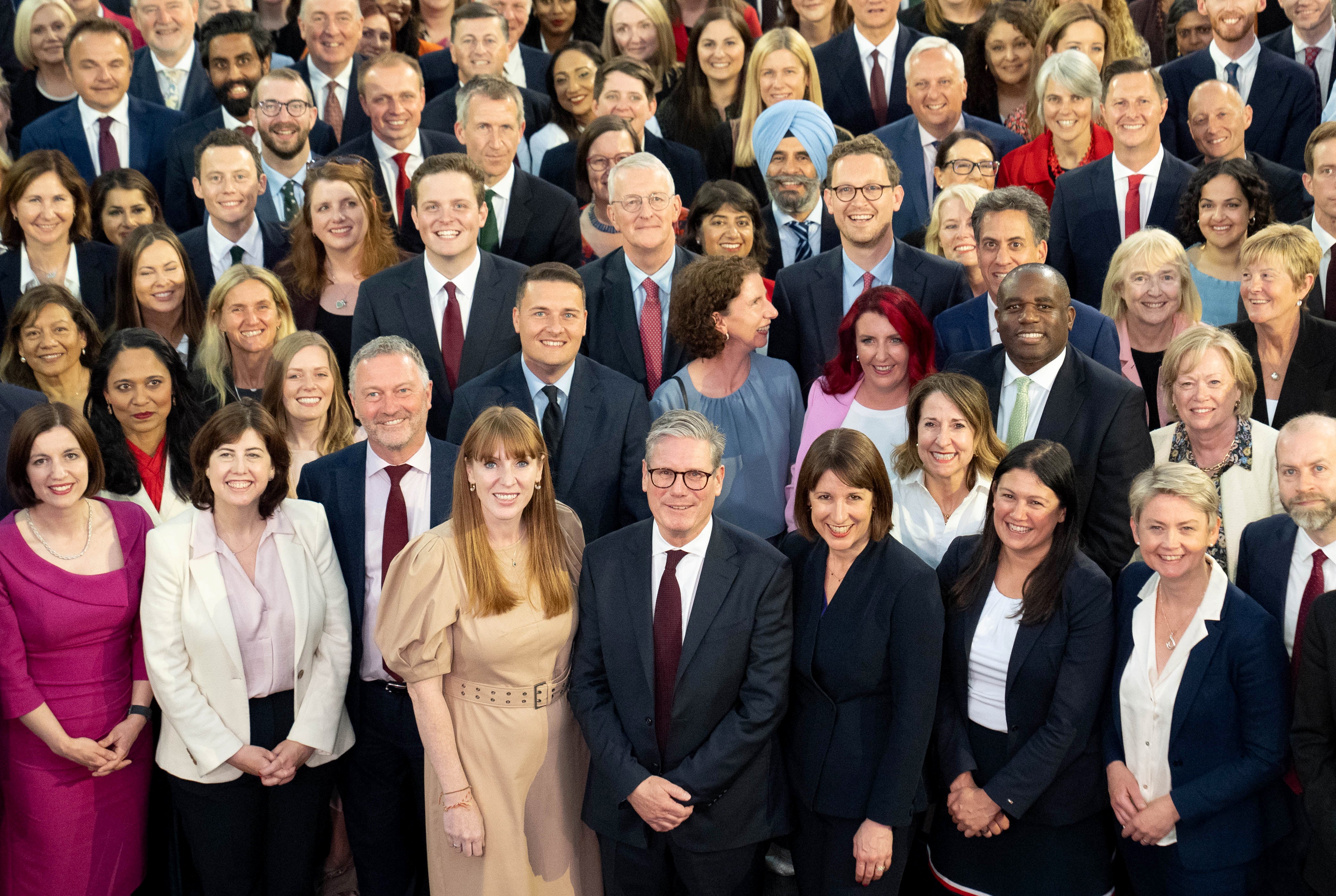Starmer’s new cabinet: who is in, who is out – and who else can attend?
The new prime minister has taken longer than usual to appoint his full ministerial team, suggesting some disputes behind the scenes, writes John Rentoul


The top jobs were all straightforward enough, as most members of Keir Starmer’s shadow cabinet were translated to the equivalent jobs in the real cabinet.
A series of quick announcements on Friday afternoon rattled through 22 posts, with the only deviation from shadow roles being Lisa Nandy, appointed culture secretary to take the place of Thangam Debbonaire, the shadow minister who lost her Bristol Central seat to Carla Denyer, co-leader of the Green Party.
Two more appointments were expected: Alan Campbell was confirmed as chief whip, and Darren Jones as chief secretary to the Treasury. They are not full members of the cabinet, and do not receive the associated higher salary, but they are entitled to attend cabinet meetings.
‘Sorry and surprised’
Then came the surprises. The attorney general, the government’s legal adviser, is another senior minister who is entitled to attend cabinet, but the job went to Richard Hermer, a lawyer who is head of Matrix Chambers, rather than to Emily Thornberry, the MP who had been shadow attorney general. He will be given a peerage so that he can serve as a minister from the House of Lords.
Thornberry was not happy about it, but waited until Monday before issuing a statement saying she was “very sorry and surprised” not to continue her work in government.
In the meantime, the new government attracted attention for two appointments at minister of state level, outside the cabinet. Patrick Vallance, the former chief scientific adviser to the government, was made a minister in the science department, and James Timpson, boss of the shoe repair company that makes a virtue of employing ex-offenders, was appointed prisons minister. Both will go to the House of Lords.
Demotion
The stream of announcements stopped on Friday evening, leaving a host of questions hanging in the air. Usually, there are 23 full members of the cabinet, but the 23rd place has still not been filled. It would usually be taken by the party chair, who in opposition had been Anneliese Dodds, but there was no announcement, and so, when the Labour cabinet had its first meeting at Saturday lunchtime, its membership was still officially fluid.
The cameras were admitted to the start of the meeting, filming the applause for the new prime minister, and recording that Dodds was present, sitting behind a place card that said: “Minister for international development”.
That was the portfolio held by Nandy in opposition – she had expected to take the role, with the right to attend cabinet, after Starmer decided to keep international development in the Foreign Office rather than as a separate department of its own.
Dodds seemed to have accepted demotion to “attending cabinet” status but there were two questions about what would happen to her shadow role: who would be party chair, and who would be responsible for “women and equalities” – Dodds had the leading role in the shadow cabinet on those subjects.
It would seem that Dodds was reluctant to give up this part of her job. Eventually, on Monday, No 10 announced that Bridget Phillipson, the education secretary, would be the cabinet minister responsible for women and equalities and that Dodds would be her deputy.
We also discovered the fate of Nick Thomas-Symonds, another member of the shadow cabinet for whom there was no room in the actual cabinet. He was appointed minister for the constitution and European relations. These are two difficult briefs: the constitution includes the reforms to the House of Lords, expelling the remaining hereditary peers and bringing in an age limit; while negotiating better trade terms with the EU is a significant task over the next four or five years.
Civil servants were said to be surprised by the slowness of the appointments, as they were expecting to welcome junior ministers to their departments over the weekend.
By Monday afternoon, it was still unclear whether the 23rd full cabinet place would be filled, and exactly how many other ministers would be entitled to attend cabinet meetings – although it was confirmed that the veterans minister, a job performed by Johnny Mercer in the Conservative government, would no longer be attending cabinet.






Join our commenting forum
Join thought-provoking conversations, follow other Independent readers and see their replies
Comments